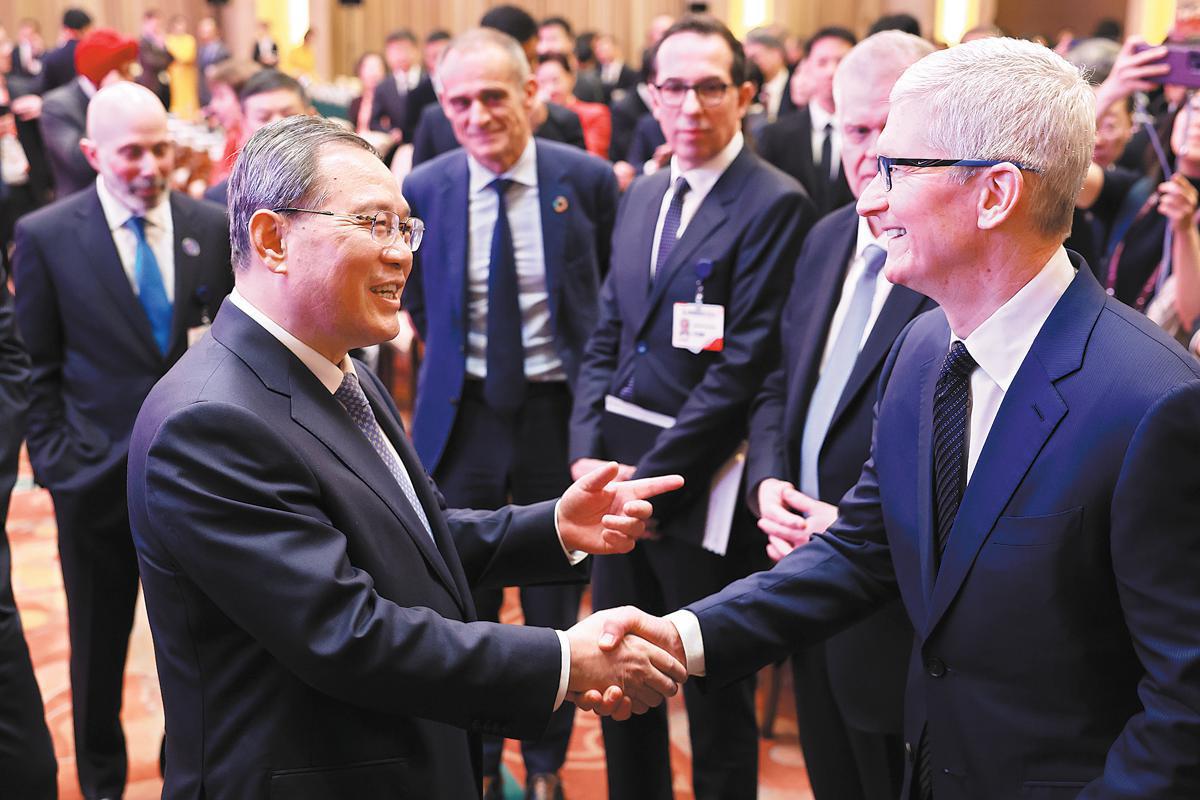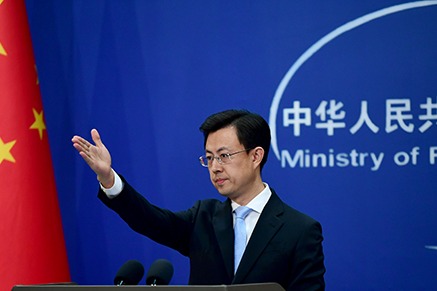Symbiotic ties between China, foreign companies growing


The China Development Forum, held on Sunday and Monday in Beijing, was attended by the CEOs of more than 80 foreign companies from a large variety of industries, such as financial services, energy, semiconductors, technology, pharmaceuticals, industrials and consumer products and services.
The forum has been a major meeting place over the years for foreign CEOs and top Chinese officials as well as Chinese corporate leaders to get together and exchange ideas. This year's forum sent an important signal as China recovers from the impacts of the COVID-19 pandemic and the world enters a rather uncertain period.
China and multinational corporations have developed a symbiotic relationship since China's reform and opening-up began several decades ago. Multinationals brought investment, know-how and capabilities to China over the years, while China offered them a reliable and cost-effective supply base as well as a market that has grown to become one of the world's largest.
China's State-owned and privately owned enterprises also benefited through mutual learning, cooperation and competition. This dynamic exchange is one of the core reasons for the rapid development of the innate capabilities of many Chinese companies to compete.
Over the past decade or so, the relationship between multinational corporations and China has entered into a somewhat uncertain period. This was driven largely by geopolitical factors as well as the pandemic.
Some commentators have even said that Western companies' confidence in China has dwindled. But has it?
Due to a much more complicated global context, some multinational corporations might have retreated from China, and some may have relocated some of their supply chains outside of China. But on the other hand, many multinationals have stayed in China and some have increased their investment in China. While FDI in China dropped 8 percent to $159 billion year-on-year in 2023, it has otherwise grown 3.3 percent on average every year since 2018, a period during which COVID and geopolitical issues were prevalent.
Apple CEO Tim Cook, who visited Shanghai last week, underscored the importance of China as a market as well as a hub of supply chains for Apple, and he announced more investment in China. Many other multinational corporations are in a similar mode.
In his keynote speech at the China Development Forum, Premier Li Qiang underscored China's plan to carefully study issues of market access and cross-border data flows and said the nation will soon issue new regulations in these areas.
Global CEOs have reinforced their confidence in the importance of China to their businesses. Philips CEO Roy Jakobs said, "I firmly believe that China will become a strong pillar of the world economy, enabled by sincere cooperation that unleashes the vitality of the world economy and benefits all of humankind."
In fact, China's entire manufacturing industry is now open to foreign companies, and the same applies to the financial services industry. Beijing has also initiated a strategic move to create a unified national market. Through these measures, the Chinese government has sent a strong signal on additional reform and opening-up.
Clearly for multinational corporations, there may still be some concerns about doing business in China. Geopolitics, local protectionism (for some industries), local competition and issues such as national and data security are on the minds of business leaders.
Increasingly, multinational corporations feel that they will need to be in China in order to participate in the fast-growing, China-led innovation ecosystems. Otherwise, they may be left behind.
China itself is undergoing a transformation as it embraces the notion of "new quality productive forces", which refers to the pursuit of higher-quality growth through more technological innovations. As China pursues such a path, it will need the participation of plenty of capable foreign companies that, together with Chinese companies, can help China advance even further. More new corporate relationships will be formed, resulting in win-win situations.
Between opportunities and risks, the majority of multinational corporations know where they stand, and business leaders make decisions based on business logic.
China plays a large role in the logic of many multinational corporations. The large turnout at this year's China Development Forum and the substantive nature of the discussions demonstrate how multinationals put China at the core of their global strategies. More and higher-quality collaboration between multinational corporations and China will create more benefits for the entire world.
The author is founder and chairman of Gao Feng Advisory Co, a strategy and management consulting firm with roots in China.
































